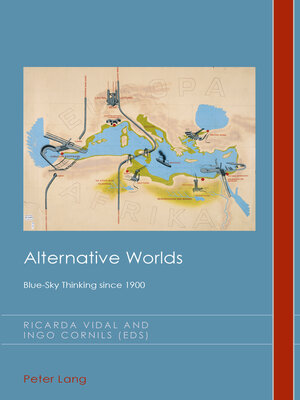Alternative Worlds
ebook ∣ Blue-Sky Thinking since 1900 · Cultural History and Literary Imagination
By Christian J. Emden

Sign up to save your library
With an OverDrive account, you can save your favorite libraries for at-a-glance information about availability. Find out more about OverDrive accounts.
Find this title in Libby, the library reading app by OverDrive.



Search for a digital library with this title
Title found at these libraries:
| Library Name | Distance |
|---|---|
| Loading... |
In an attempt to counteract the doom and gloom of the economic crisis and the politicians' overused dictum that 'there is no alternative', this interdisciplinary collection presents a number of alternative worlds that were conceived over the course of the last century. While change at the macro level was the focus of most of the ideological struggles of the twentieth century, the real impetus for change came from the blue-sky thinking of scientists, engineers, architects, sociologists, planners and writers, all of whom imagined alternatives to the status quo.
Following a roughly chronological order from the turn of the nineteenth century to the present, this book explores the dreams, plans and hopes as well as the nightmares and fears that are an integral part of alternative thinking in the Western hemisphere. The alternative worlds at the centre of the individual essays can each be seen as crucial to the history of the past one hundred years. While these alternative worlds reflect their particular cultural context, they also inform historical developments in a wider sense and continue to resonate in the present.
Following a roughly chronological order from the turn of the nineteenth century to the present, this book explores the dreams, plans and hopes as well as the nightmares and fears that are an integral part of alternative thinking in the Western hemisphere. The alternative worlds at the centre of the individual essays can each be seen as crucial to the history of the past one hundred years. While these alternative worlds reflect their particular cultural context, they also inform historical developments in a wider sense and continue to resonate in the present.







